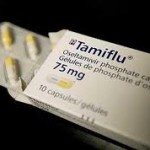Avian flu virus or avian influenza is also known as HiN1, H5N1, or Bird flu. It is named “avian†because it basically a flu that infects birds. But humans have no form of immunity against this virus. Like all other pathogenic organisms, the avian flu virus changed to completely infect humans as well, resulting to a worldwide epidemic. You may contract avian flu if you get in contact with an infected bird, getting in contact with contaminated objects and surfaces, or if you eat the uncooked eggs, meat, or blood of the infected bird. These carriers could shed the virus through their saliva and feces for 10 days. Usually, those who work closely with poultry, those in contact with avian flu patients, and backpackers usually get infected easily. In diagnosing a patient, the doctor subjects the patient to chest x-ray, white blood cell (WBC) differential, auscultation to hear breath sounds, and nasopharyngeal culture.
Fatalities from the human avian flu virus (H5N1) is 50%. You should definitely not let this worsen, so you have to be vigilant in being aware. Here are some of the facts about the avian flu virus that is really important for you to know, especially if you suspect yourself or a loved one of having it:
1. Signs and symptoms
 Signs and symptoms of the avian flu are diarrhea, high fever (above 38 C or 100.4 F), productive or dry coughs, difficulty in breathing, sore throat, headache, runny nose, muscle pain, and general body weakness. These symptoms could be very alarming, especially if you are aware of the proximity that you have with birds. They are very similar to the ordinary signs and symptoms that you experience when you have the common influenza. In order to be sure, you have to be culture tested. This would make the healthcare practitioners deal with your virus the best way possible.
Signs and symptoms of the avian flu are diarrhea, high fever (above 38 C or 100.4 F), productive or dry coughs, difficulty in breathing, sore throat, headache, runny nose, muscle pain, and general body weakness. These symptoms could be very alarming, especially if you are aware of the proximity that you have with birds. They are very similar to the ordinary signs and symptoms that you experience when you have the common influenza. In order to be sure, you have to be culture tested. This would make the healthcare practitioners deal with your virus the best way possible.
2. Vaccine
 At this time, there are still no recommended avian flu virus vaccines in general. So far, there has been fifteen strains of the avian flu virus. Some people have already died from the avian flu virus, more on the regular strains. Since viruses constantly mutate to adapt, it is recommended that the avian flu virus vaccine should be given yearly, if ever there will be a certain vaccine against it. However, the USFDA has approved one vaccine for avian flu virus but it will only be used just in case of a human to human spread of the human avian flu.
At this time, there are still no recommended avian flu virus vaccines in general. So far, there has been fifteen strains of the avian flu virus. Some people have already died from the avian flu virus, more on the regular strains. Since viruses constantly mutate to adapt, it is recommended that the avian flu virus vaccine should be given yearly, if ever there will be a certain vaccine against it. However, the USFDA has approved one vaccine for avian flu virus but it will only be used just in case of a human to human spread of the human avian flu.
3. Treatment
 For the avian flu virus, treatments differ from one case to the next. For medicatins, antivirals are commonly prescribed. Some examples are  Relenza (zanamivir) or Tamiflu (oseltamivir). These antiviral medications lessen the severity of the avian flu, provided that you take it within the span of 48 hours after the start of your symptoms. Osaltemivir is usually prescribed to people who reside in the same house as those affected with the avian flu virus. In case that the plain avian flu virus becomes human avian flu virus (H5N1), the antivirals amantidine and rimantidine are not effective.
For the avian flu virus, treatments differ from one case to the next. For medicatins, antivirals are commonly prescribed. Some examples are  Relenza (zanamivir) or Tamiflu (oseltamivir). These antiviral medications lessen the severity of the avian flu, provided that you take it within the span of 48 hours after the start of your symptoms. Osaltemivir is usually prescribed to people who reside in the same house as those affected with the avian flu virus. In case that the plain avian flu virus becomes human avian flu virus (H5N1), the antivirals amantidine and rimantidine are not effective.
4. Complications
 If the avian flu virus is not treated, then it is possible for complications to come out. There will be organ failure, acute respiratory distress, sepsis, and pneumonia. Sepsis, is brought about by infection in the blood. It inevitably leads to organ failure because it is already on the systemic level.
If the avian flu virus is not treated, then it is possible for complications to come out. There will be organ failure, acute respiratory distress, sepsis, and pneumonia. Sepsis, is brought about by infection in the blood. It inevitably leads to organ failure because it is already on the systemic level.
5. Prevention
 You must be very careful and very vigilant in knowing how to deal with the avian flu virus at the earliest possible time. If you have recently travelled to an area where there is an outbreak of avian flu or handle an infected bird and suddenly experience flu-like symptoms, you should immediately contact your doctor. You should avoid areas where there are outbreaks of the avian flu virus. You should also avoid eating raw or undercooked poultry or wild bird meat.
You must be very careful and very vigilant in knowing how to deal with the avian flu virus at the earliest possible time. If you have recently travelled to an area where there is an outbreak of avian flu or handle an infected bird and suddenly experience flu-like symptoms, you should immediately contact your doctor. You should avoid areas where there are outbreaks of the avian flu virus. You should also avoid eating raw or undercooked poultry or wild bird meat.
The avian flu virus could be prevented from overcoming the health of the greater population if everyone chips in and does his or her part. It is a virus that spreads easily and mutates easily. It is the adversary in an invisible battle in the world of health. The avian flu virus should be controlled and perhaps eradicated from the face of the earth.
Work well with your local healthcare center and your personal healthcare provider so that you may always be updated about the developments with regard to the existence and control of the avian flu virus. Prevention is a lot better than cure.
